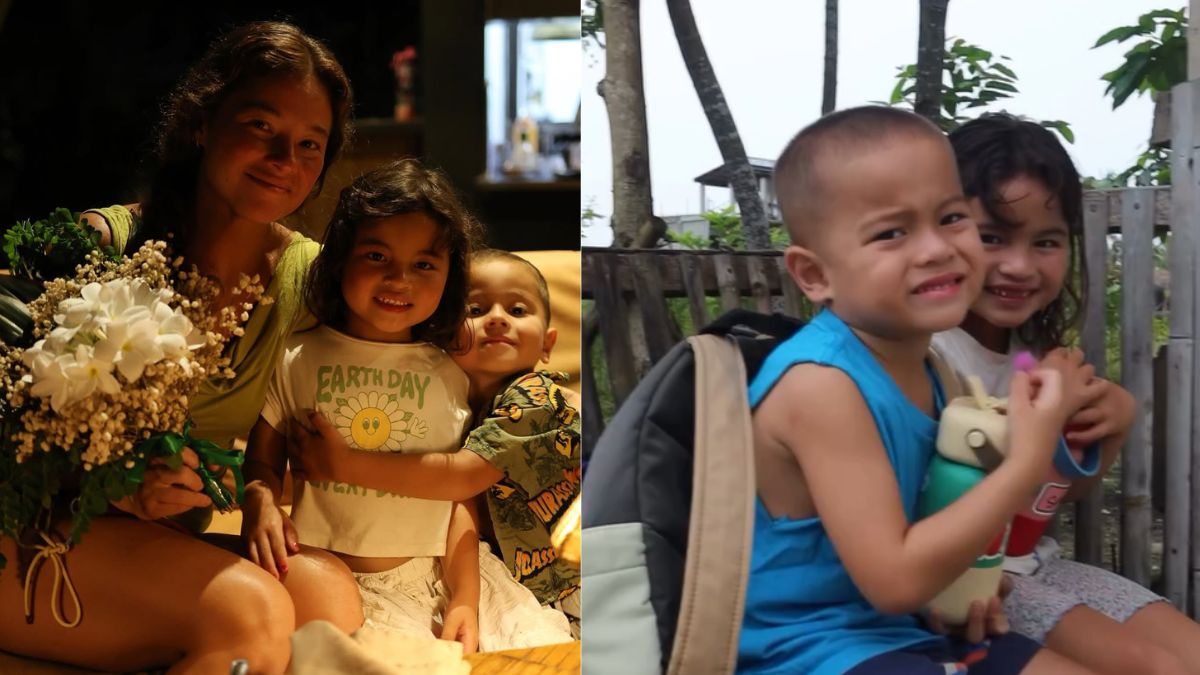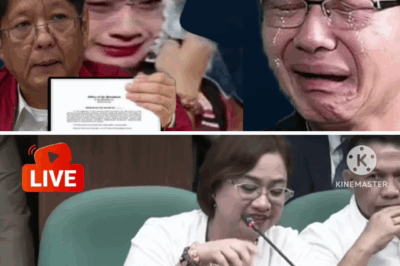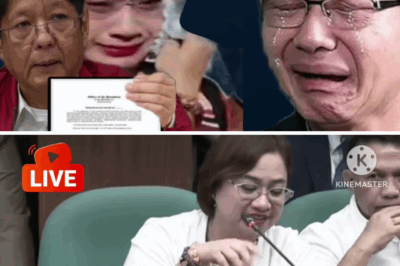Andi Eigenmann Defends Her Children from “Madungis” Remarks: Choosing Messy Joy Over Superficial Cleanliness
In the age of social media, where every photo and video is subject to scrutiny, it has become increasingly common for celebrities to find themselves at the receiving end of unsolicited opinions. Actress-turned-island mom Andi Eigenmann, known for her decision to leave the glitz of showbiz to raise her children in Siargao, recently faced this situation head-on. When some online commenters called her children “madungis” — a Filipino term that roughly translates to “untidy” or “messy” — Andi did not remain silent. Instead, she delivered a powerful response that not only defended her kids but also shed light on her philosophy of parenting, childhood, and what it means to live fully.
This incident, which unfolded on Instagram in early September 2025, sparked conversations about parenting styles, the pressures of perfection in the digital era, and the true essence of childhood happiness.

The Post That Started It All
On September 4, 2025, Andi shared a short Instagram Reel capturing a simple yet heartwarming moment: her two children, Lilo and Koa, walking to school. In the video, the siblings carried their backpacks and water bottles, smiling as they picked flowers along the way. The clip was unpolished, natural, and true to the lifestyle that Andi and her fiancé, professional surfer Philmar Alipayo, have embraced on the island.
Her caption reflected her parenting ethos:
“Any path becomes an adventure when you choose to enjoy it!”
For many followers, the post was wholesome and inspiring, a glimpse into the kind of childhood many adults yearn for — one filled with nature, discovery, and freedom. Yet for some, the children’s slightly disheveled appearance became the focus. A number of commenters described the kids as “madungis,” sparking a wave of criticism that touched a nerve for Andi.
Andi’s Sharp Response
Later that evening, Andi took to her Instagram Story to directly address the remarks. Her words were pointed but thoughtful, revealing both her frustration and her deep conviction as a mother.
She wrote:
“The amount of people who comment about my kids looking madungis are most likely the same type of people who have children stuck on their iPads all day, eating fast/junk food for all three mealtimes (and probably more), and then throw huge fits whenever things don’t go their way.”
She continued:
“No parent is perfect, but I’d rather mine be messy from living fully, than clean from sitting still and being disconnected from it.”
In these lines, Andi set a clear boundary: she refused to accept superficial criticisms of her children’s appearance, especially when those criticisms ignored the value of authentic experiences and natural living. For her, messy clothes, dusty feet, or unkempt hair are not signs of neglect but evidence of children immersing themselves in the world around them.
A Different Kind of Childhood
Andi’s response was more than just a clapback at haters. It was also a reminder of the alternative lifestyle she has chosen for her family. After leaving show business in 2017, Andi moved to Siargao to live a slower, simpler life. The island, known for its pristine beaches and surfing culture, became the backdrop for raising her three children — Ellie, her eldest daughter with Jake Ejercito, and her younger children, Lilo and Koa, with Philmar.
Instead of gadgets, fast food, and air-conditioned malls, her kids spend their days swimming in the sea, running barefoot on the sand, and exploring their natural surroundings. Their “madungis” appearance is not the result of poor care but of rich experiences. They are free to play, get dirty, and learn through exploration — something many urban children today rarely experience.
Netizens Speak Out
The online reaction to Andi’s statement was overwhelmingly supportive. Many followers, especially those who grew up in the provinces, resonated with her message and shared their own stories of messy but joyful childhoods.
One user commented:
“Wow, remembering our old days in the province enjoying the simple things on the way to school. Your kids are lucky to experience that!”
Another wrote:
“The experiences they’ll treasure will become part of their childhood memories. Growing up in the province is special because it’s full of joy.”
Some defended Andi more bluntly:
“That’s just the comment of gossiping moms who have nothing better to do. Let them be messy, sweaty, but super happy.”
These responses reflected a collective nostalgia for a simpler way of growing up — a stark contrast to today’s urban childhoods dominated by screens and consumerism.
Parenting in the Public Eye
For celebrity parents like Andi, social media can be a double-edged sword. On one hand, it allows them to share their journeys, inspire others, and connect with fans. On the other hand, it exposes them to endless criticism, often from strangers who impose their own standards on how children should look, behave, or be raised.
Andi’s case highlights a larger issue: the unrealistic expectations of perfection placed on parents, especially mothers, in the digital age. Every photo becomes a litmus test for whether one is a “good parent,” and any perceived flaw becomes ammunition for online judgment.
By speaking out, Andi not only defended her children but also challenged the culture of constant criticism. She reminded the public that parenting is not about curating perfect images but about making choices that prioritize children’s well-being and happiness.
The Message Behind the Mess
At the core of Andi’s response is a philosophy that resonates far beyond celebrity culture. Her words underscore a universal truth: childhood is meant to be lived, not staged.
In today’s fast-paced, image-driven world, there is a temptation to equate cleanliness and order with good parenting. But Andi challenges this notion by celebrating the messy realities of childhood — scraped knees, grass-stained shirts, and dirt under fingernails. To her, these are not imperfections but badges of a life well-lived.
By allowing her kids to get “madungis,” she is giving them the freedom to explore, to connect with nature, and to develop resilience. She is choosing presence over perfection, substance over appearance.
A Broader Reflection on Modern Parenting
Andi’s story opens the door to a broader reflection on how society views parenting today. In urban settings, where children are often confined indoors, glued to gadgets, and shielded from the “messiness” of nature, her approach can seem radical. Yet, it also highlights the dangers of overprotection and disconnection.
Research has shown that children benefit immensely from outdoor play, unstructured exploration, and even the simple act of getting dirty. These experiences build immunity, foster creativity, and strengthen problem-solving skills. By prioritizing these elements, Andi is not just defending her children from online critics but also advocating for a healthier, more holistic way of raising kids.
Conclusion: Living Fully, Not Perfectly
The controversy over Andi Eigenmann’s children being called “madungis” may seem trivial at first glance, but it carries a powerful message. In her refusal to bow to superficial criticisms, Andi reminds us that true parenting is not about appearances but about values.
Her children may come home with messy clothes and sweaty faces, but they also come home with stories, laughter, and memories that will last a lifetime. For Andi, that is worth far more than the approval of strangers on social media.
In a world obsessed with perfection, her voice stands as a refreshing reminder that life is meant to be lived — fully, messily, and joyfully.
News
💥Vico Sotto SLAMS Discayas! 28 hidden luxury cars exposed, lies unraveled, Senate probes corruption—nation in shock over scandalous cover-up!💥
Vico Sotto Exposes Discaya Family Over Hidden Luxury Cars Pasig City Mayor Vico Sotto has publicly criticized contractor couple Sarah…
💥Vico Sotto EXPOSES Discayas’ hidden luxury cars! Lies, excuses, and scandal erupt—28 vehicles vanished before Bureau of Customs raid!💥
Vico Sotto Exposes Discaya’s Lies Over Hidden Luxury Cars In a recent turn of events, Pasig City Mayor Vico Sotto…
🔴 Julia Barretto Breaks Silence on Breakup with Gerald Anderson — Alleged third-party involvement sparks widespread speculation, while Gerald remains silent. Fans are eager for the full story.
Julia Barretto Breaks Silence on Breakup with Gerald Anderson: Third-Party Speculation Sparks Buzz In a revelation that has captivated fans…
🔴 Julia Barretto reveals breakup truth with Gerald Anderson—third-party rumors spark frenzy, fans demand answers, Gerald stays silent! 🔥
Julia Barretto Breaks Silence on Breakup with Gerald Anderson: Third-Party Allegations Surface In a recent revelation that has sent shockwaves…
Senators Escudero and Villanueva sentenced to life amid ghost project scandal—Philippines reels as corruption, betrayal, and political intrigue unfold.
Breaking: Senators Escudero and Villanueva Sentenced to Life Imprisonment in Massive Corruption Scandal In a stunning verdict that has sent…
Senators Escudero and Villanueva sentenced to life over ghost projects—shocking scandal rocks the Philippines, leaving nation in disbelief.
Breaking News: Senators Escudero and Villanueva Sentenced to Life Imprisonment Amidst Ghost Project Scandal In a shocking turn of events,…
End of content
No more pages to load












